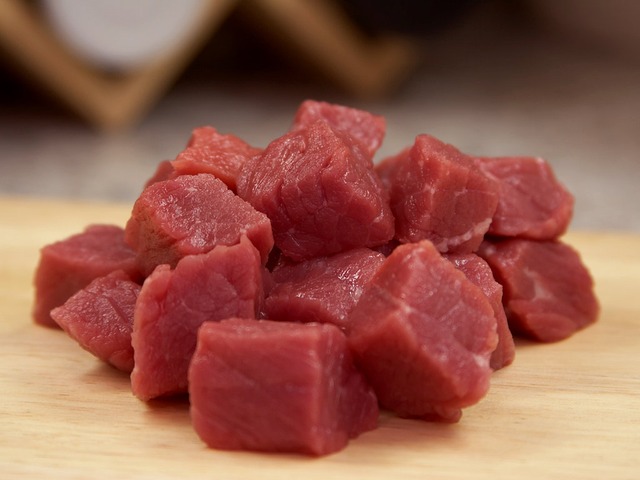Clean Meat: The Next Food Revolution?
It is no secret that most people believe that we need to change the way that we, as humans, generate foods for consumption. The goal is to do what we can to preserve the environment for future generations. Science and genetics have made great strides in achieving this through sustainable farming methods. We have genetically enhanced seeds to grow foods faster and larger than organic farming techniques. These genetic enhancements, once thought of as taboo, are now common in our everyday food supplies. But our meat, remains all natural, for now that is.

This has posed a challenge to science and genetics. How can we change the way we produce consumable meats? Meat is a key source for proteins that humans need. While there exists several other forms of acceptable proteins, meat remains a top choice for the majority of the world population.
The challenge, produce clean, real meat products that are not from the actual animals, while maintaining an affordable cost to consumers. The latest disruptor, the push for clean meat, is seeing this challenge being met. How is this possible? In the production of cultured meats, the cells from living tissues of animals is taken and grown in in a lab- controlled environment. This allows for meat production where the animals themselves are not used in the actual production of consumable meat.
The meat produced is real meat. Currently, a two-cell formula is being used to generate meat the consistency of hamburger meat. Dr. Mark Post from Maastricht University produced the first clean meat burger in 2013. That burger cost, a whopping $330,000 to produce. (What is Clean Meat? https://cleanmeat.org. Retrieved, 9/17/19.)
The process he developed produces an antibiotic free meat product that is purportedly safer for the environment, human health and more humane towards the living animals. These meat products would reduce or eliminate the need for slaughterhouses and allow the animals to live life fully. It is believed by some scientists that this would improve emissions, save on clean water and land resources.
So far, it is not cost effective to produce the clean meat products. But with new companies starting up each year and technological improvements, it is believed that the disruption of clean meats could become relatively cost effective within the next year. It is anticipated that clean meat hamburgers will be available in 2020 from the company, Mosa Meats, for $10 each. (What is Clean Meat? https://cleanmeat.org. Retrieved, 9/17/19.) Only time will tell if this price reduction is truly possible.

They are hopeful to produce meat products that have the consistency of steak. Their process uses 3d technology to bring the four-cell process to fruition. (https://www.plantbasednews.org/lifestyle/clean-meat-startup-makes-breakthrough-new-3d-technology. Retrieved, 9/18/19.) This process, quite possibly addresses the way the meat is grown with the lack of a true blood supply to feed the meat oxygen and other vital nutrients that would typically be passed through an animals blood supply. Thus, allowing for the variations of consistencies.
At Bear Stearns Research, the big question we want to answer for our clients is exactly how these new products will impact the current meat industry markets. If the technology costs can be minimized and the pricing become acceptable to the consumers; what happens to the current meat industry? What are the impacts to the farming industry as a whole?
The US and Israel seem to be leading the way with government approvals, or at least, interest in making approvals for the sales of these products. If the FDA and the USDA approves this type of meat product for sale in the US, it will dramatically change the farming industry across the globe. The same holds true of the regulatory bodies of Israel.
We already have genetically modified plant products available in the food markets. When these practices started being implemented, we saw a rise in organic farming of plant products. There is a large percentage of people that don’t trust the genetically modified products that are in the market. Concerns about how lab-grown meats would be produced without the animal are inevitable. How can the consumer be certain that the quality of the meat product will be as good as traditional farm grown meats from real animals? Will there be health issues that arise later? Can scientists and geneticists replicate a sufficient blood flow to the lab-grown products? Will the taste be the same as real meat? Will there be any special additives to aid in faster production?
All of these questions will need to continue to be addressed before market adoption can occur. This could leave traditional farmers with a market for their standard from livestock meats for a greater length of time. However, the industry could become a significantly smaller piece of the overall market.
There are several paths that this disruptor could take. First, drastic reduction in the numbers of livestock production farms; thereby, having the current meat market converted to a lab-grown market. This would allow for a small number of traditional live stock meats to be available. Furthermore, creating a price increase for traditional meat. Secondly, a system that allows for a more balanced mix between the livestock meat and the new lab-grown meat markets. This could create healthy competition between the options. Thereby driving prices for both types of products down. There is a chance, although not foreseeable at this time, where the lab-grown meat option would completely replace all natural meat production.
The biggest question surrounding the lab-grown meat technology is- can it really stay safe? The argument has been made that livestock meats are loaded with unhealthy antibiotics. This allows for increases in antibiotic resistant illnesses, e-coli and other health hazards. An argument can be made that in a lab- setting, the meat could be tampered with. If a contaminant of any kind were introduced to the lab, would it be passed along to the consumers through contaminated meat products? What would the financial impacts look like? Could one incident destroy the entire market? This all remains to be seen. It will require final legislation and approvals from world governments to put any theories to the test. While it appears the US and Israel are leading the way in legislative initiatives; it may be another Asian nation that approves the use of lab-grown meat technologies.
The growth of this new market will need to be slow and progress over time. It will need to be proven that production can meet demand, be cost effective and hazard free. Until these requirements have been proven on a larger scale, it is not believed there will be a boon in this particular meat industry. Meat production levels will need to remain constant on the livestock side while further testing is completed on the lab-grown side.
The future benefit of this technology is phenomenal however and Bear Stearns Research will continue to monitor the industry closely and continue to explore ways to be a part of the solution while providing avenues and perspective for our clients on when and how to become a part of this potentially disruptive technology.












